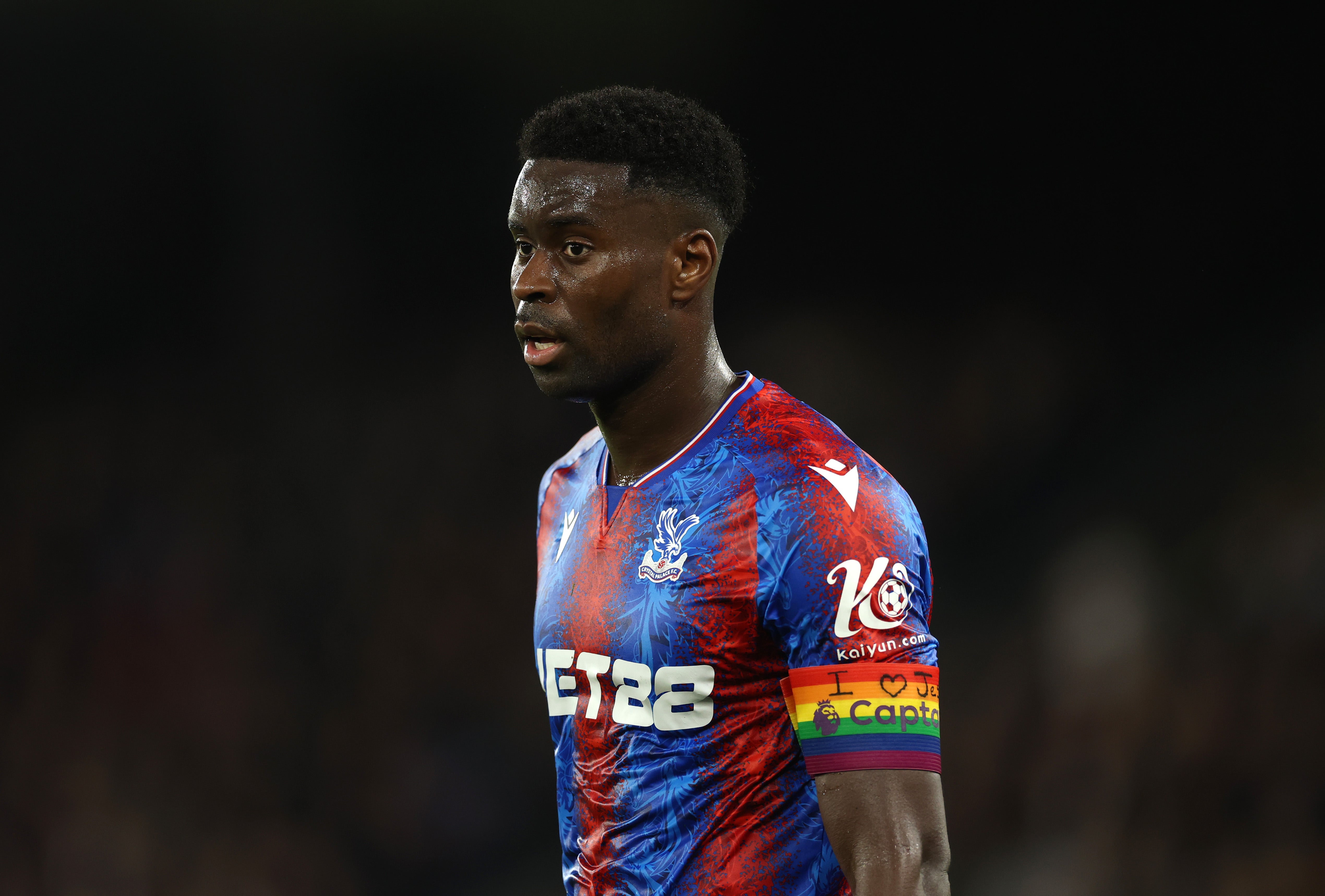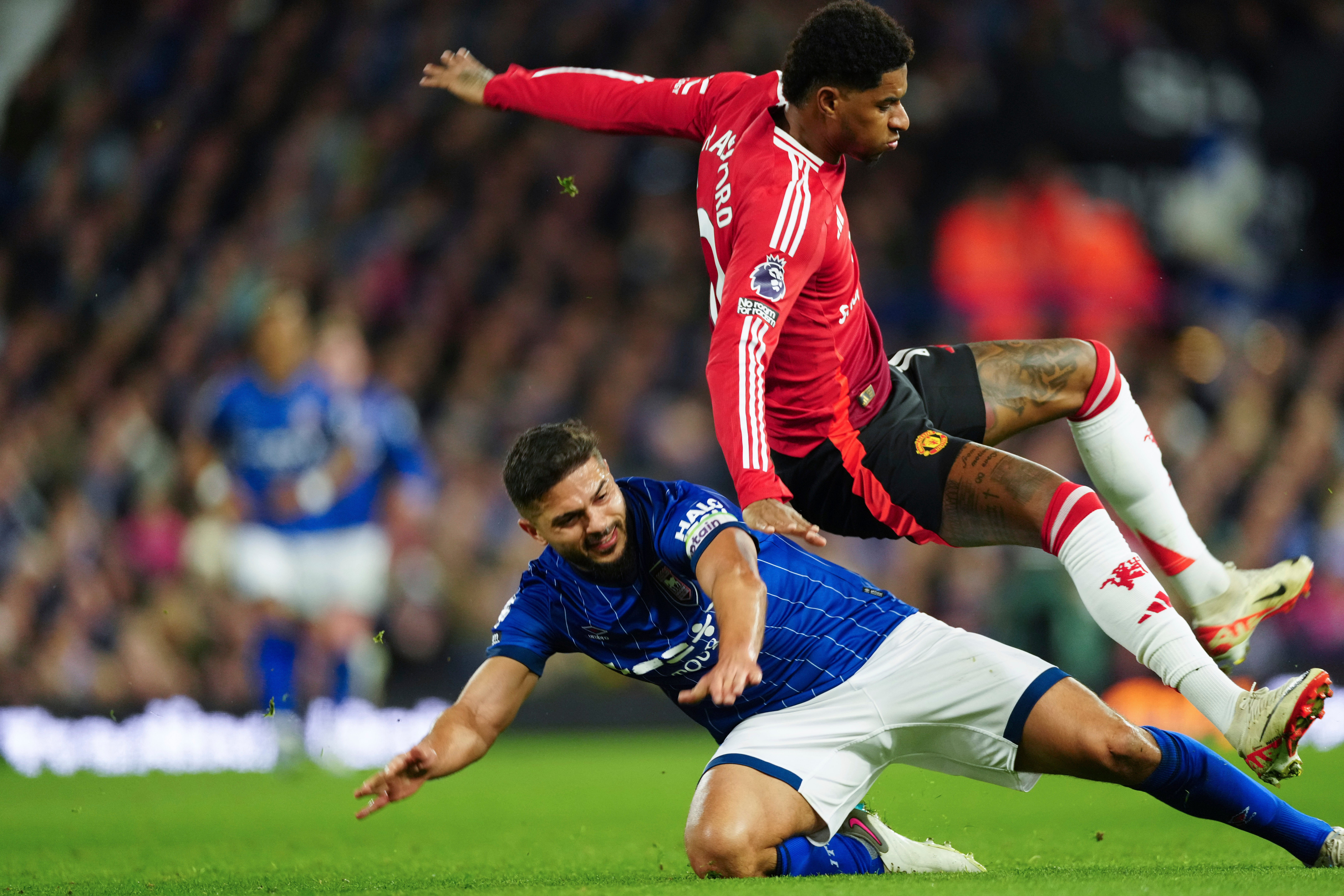
There was something a little absurd about Ipswich Town’s statement this week, which attempted to make a Cruyff-turn halfway through. Their captain Sam Morsy opted against wearing a rainbow-coloured armband in support of the LGBTQ+ community due to his “religious beliefs” (otherwise known as his beliefs), and it left the club in an awkward position. Ipswich proudly support the LGBTQ+ community; Ipswich proudly stand by their captain’s decision not to show any support to the LGBTQ+ community.
The 33-year-old Morsy, who grew up in Wolverhampton and represents Egypt through his father, is a practicing Muslim, and we might reasonably assume from his decision that he believes homosexuality to be a sin. That left Ipswich performing the kind of highwire act Premier League clubs are increasingly required to pull off, pointing to their involvement in worthy community events and education while respecting his position. Though, perhaps if the club were really committed to supporting the LGBTQ+ community, choosing another captain for the day might have made for a stronger message.
Morsy is not the only Premier League player to take issue with the campaign on religious grounds. Crystal Palace captain Marc Guehi wrote “I love Jesus” on his rainbow armband, while the Moroccan defender Noussair Mazraoui reportedly caused his Manchester United teammates to ditch pride-themed warm-up jackets when he raised his opposition to the cause.
The Rainbow Devils, United’s official LGBTQ+ supporters club, said: “We respect the right of this player to have his own views, whilst also feeling disappointed that he put the rest of the squad into a position where they felt that they couldn’t wear their jackets. We also worry what kind of negative effect this incident might have on any player at the club who may be struggling with their sexuality.”
Meanwhile on X, Morsy’s decision was weaponised by some users as a heroic stand against the virtue-signalling gender-identity brigade, a win in the struggle against the woke agenda, a triumph for the freedom of personal choice. Even if these would be plenty of the same people who were furious when James McClean chose not to wear a poppy last month. Go figure.
“Fair play to Ipswich Town’s Sam Morsy for refusing to wear the demonic rainbow armband,” read one tweet, among a stream of unmoderated homophobia. “Homosexual behavior and the general LGBTQ nonsense should never be part of the beautiful game.” That post has 5,000 likes and counting.

But despite what you might read online, the Premier League’s participation in the Rainbow Laces campaign isn’t part of a deep-state plot to convince children to switch gender. It’s really quite a simple initiative, a call to certain groups of people who have long felt marginalised in, and by, sport, to show that they are welcome at football grounds and that the game is for everybody.
One in four LGBTQ+ people do not feel welcome at live sports events, and around the same number do not feel welcome in community sport groups or team sports. Rainbow Laces is a way of letting football fans know that they are free to be themselves, to hold hands with whoever they want inside a football stadium, and that it is not a space where bigotry will be allowed to thrive – and yet the campaign is being harnessed to air discriminatory views.
Morsy decided not to participate and that is his choice. He won’t face any punishment from the Football Association, and neither will Marc Guehi, the Crystal Palace captain who wrote “I love Jesus” on his rainbow armband. The FA reminded Guehi of rules which forbid religious symbols and messaging, only for him to write “Jesus loves you” on his armband in the next match. The optics of handing out fines for declarations of love to Jesus aren’t ideal, so perhaps that is why the FA chose to remind him of the rules, again.
They are not the first players to wrestle with religion in football. In 2022, Senegalese midfielder Idrissa Gueye refused to play in a match for Paris Saint-Germain because he did not want to wear the rainbow symbol stitched into his jersey. He was supported by several other footballers, with then Crystal Palace midfielder Cheikhou Kouyate posting a picture of Gueye on Instagram beside the caption: “A real man.” It prompted one of the more creative Premier League taunts when he joined Everton, as opposition fans sang: “He hates his own naaaaame! Idrissa Gueye, he hates his own name!”
In 2013, fellow Senegalese international Papiss Cisse refused to wear Newcastle United’s kit due to the club’s £24m sponsorship by the payday loans company Wonga, citing that the giving or receiving of interest is prohibited by Sharia Law. It required lengthy negotiations between Imams, Islamic law experts and the Professional Footballers’ Association to eventually resolve the issue, although the impasse was reportedly broken by photos of Cisse in a Tyneside casino.

Some social media sleuths have been quick to post photos of Morsy wearing the logos of betting companies on past shirts, accusing him of inconsistency in his values. In fairness, it is hard to see how a modern footballer could escape when the game is viewed through a kaleidoscope of gambling ads. By comparison, the sprinkling of rainbow motifs around the Premier League should be altogether less problematic, a welcoming nod to those who might have traditionally felt unwelcome in football spaces.
Perhaps there needs to be a different approach to these initiatives, one that starts with players taking ownership of the campaign rather than the sense of being ‘imposed’ by clubs or the league. During lockdown, Premier League players came together in support of the NHS after captains exchanged messages on Whatsapp, before drumming up a financial pledge. A bottom-up approach won’t resolve all opposition but it might at least establish some player-led momentum for a positive cause. Because right now, Rainbow Laces are being twisted by the culture war, while Premier League clubs like Ipswich tie themselves in knots.







